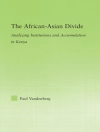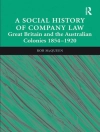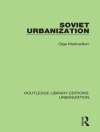City-county separation is a form of governance in which rural and urban areas are formally separated. Although these areas were once thought to be distinct because of their diverse sets of values, economies, labour trends, and ways of life, more recently, and in response to regional growth, governments have begun to design institutions that link the city to surrounding rural governments in order to provide greater policy and service continuity to the region. Detailing the development of municipal institutions, the original logic behind the city-county separation, and the eventual shift in institutional and municipal organization, The Boundary Bargain demonstrates that urban and rural areas have always had a reciprocal relationship and that both play an important role in the strength of the national economy and the broader local community. Focusing on three case studies of separated cities and their counties that still retain strict city-county separation – London, Guelph, and Barrie – Zachary Spicer reveals how this policy works, what problems it poses, and examines the best practices for addressing growth, development, and sprawl from a regional perspective. Highlighting the dangers of municipal institutions that are too rigid to modernize, The Boundary Bargain provides a strong historical account of city-county separation that will guide governments from within and beyond Ontario on how to better manage growth.
Zachary Spicer
Boundary Bargain [PDF ebook]
Growth, Development, and the Future of City-County Separation
Boundary Bargain [PDF ebook]
Growth, Development, and the Future of City-County Separation
购买此电子书可免费获赠一本!
语言 英语 ● 格式 PDF ● ISBN 9780773599048 ● 出版者 MQUP ● 发布时间 2016 ● 下载 3 时 ● 货币 EUR ● ID 5837505 ● 复制保护 Adobe DRM
需要具备DRM功能的电子书阅读器












